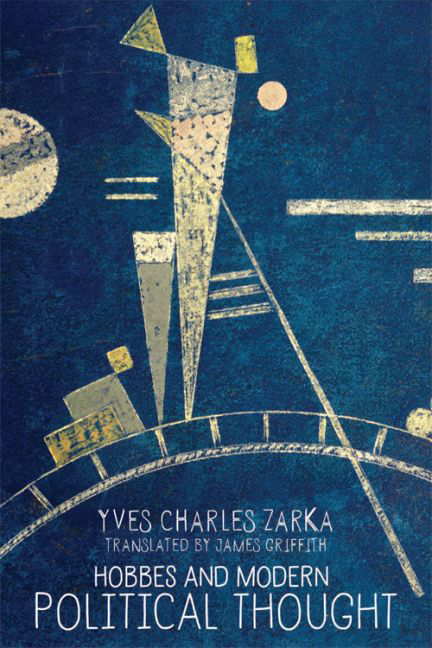Conclusion
Published online by Cambridge University Press: 23 September 2017
Summary
HOBBES's CONTRIBUTIONS
At the end of this journey which sought to recapture Hobbesian conceptual work in the field of political thought, we can retain four essential contributions of Hobbes to the definition of the modern concept of the political. Let us clarify, first of all, that the modern concept of the political does not consist of a single and homogeneous theoretical orientation: it is crossed by fractures and antinomies. To determine Hobbes's contributions does not in any way imply the idea that these contributions must be generally shared or taken up again by subsequent thinkers: it is a question only of freeing someone from the decisive modifications or innovations introduced by Hobbes within the construction of the intellectual categories of modern political thought through his fractures and his antinomies. Let us clarify, next, that the determination of the four contributions is not intended to be exhaustive. There are indeed whole sections of Hobbes's political thought that we have not approached, in particular the relationship between politics and religion where the three non-superimposable relations between state and Church, temporal and spiritual, reason and revelation is redistributed.
Hobbes's first contribution concerns the theory of the universal individual. Certainly, the relationship between the concept of the individual and the modern theory of the state is a classical place for commentary. We have however wanted to take account of his range by way of a new angle: that by which the universalisable concept of the individual again puts into question the vision of the world and of politics linked to the definition of the heroic singularity described by Gracián. Hobbes's individual is universal in the same way as his essential ethico-political attribute: natural right. Negatively, we can say that the concept of the individual dissolves every natural social hierarchy and every organic conception of the people. The correlate of the individual is the multitude from which must be thought an institution of the people, indissociable from the institution of the state. Positively, we can say that Hobbes elaborates his ethical concept of the individual in re-elaborating the doctrine of the constitution and of the deployment of man's cognitive and affective life. It is around this ethics that the theories of right and of contract [contrat] are organised and reinterpreted.
- Type
- Chapter
- Information
- Hobbes and Modern Political Thought , pp. 247 - 250Publisher: Edinburgh University PressPrint publication year: 2016



